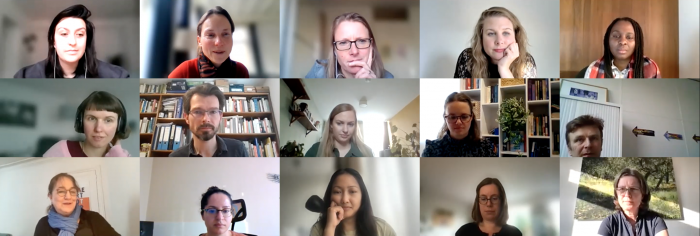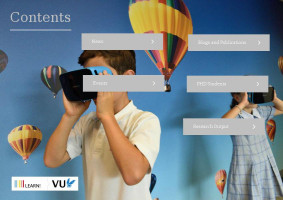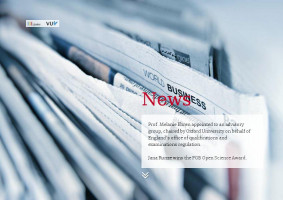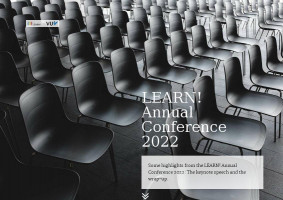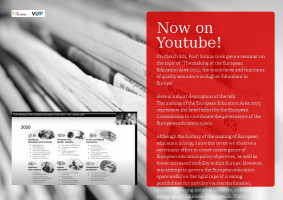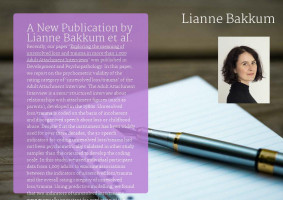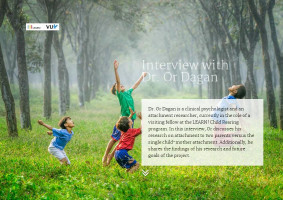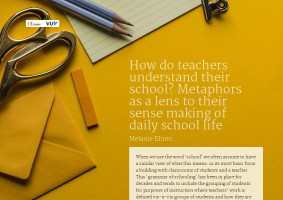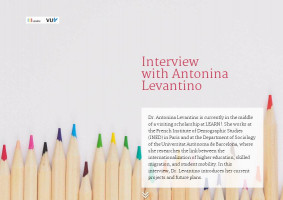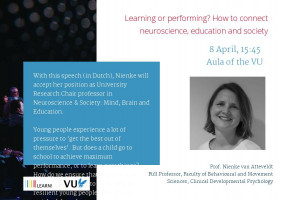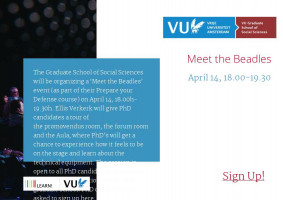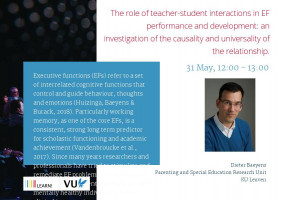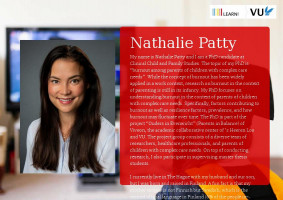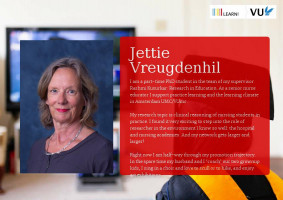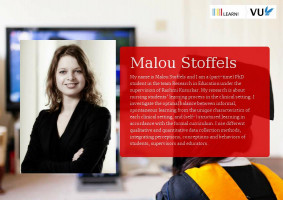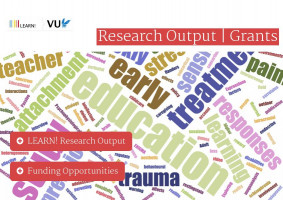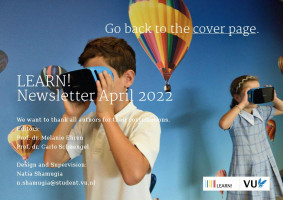Keynote Speaker: Filip van Droogenbroek
The keynote speaker for the conference was Filip van Droogenbroek, assistant professor of Data Analytics at the Department of Business Technology and Operations of the Vrije Universiteit Brussel. His presentation, “The Mental Health of Teachers in a Comparative Perspective,” demonstrated how a critical part of educational research is to question long-held beliefs and to test those beliefs’ scientific merit to identify best practices in supporting teachers. Within the higher educated workforce in Flanders, 12% of those workers are teachers; because the workforce is so large, it becomes easy for myths to propagate through repetition and agreement. A widespread belief is that teachers struggle much more than people in other professions, something that is reflected in both academic literature and general media. However, van Droogenbroek notes, many of the studies that examine teacher stress, distress, and burnout do not actually compare teachers’ work stress with the stress experienced by people in other professions. Is the idea of teachers experiencing more stress than any other profession a self-perpetuating myth? He shared findings from two research projects centered on teacher burnout in comparative contexts to examine this question.
The first comprised an investigation of teachers’ mental health outcomes compared to the outcomes of people in other professions. Across OECD countries, 18% of teachers indicate experiencing “a lot” of stress due to their profession, with Flemish teachers in Belgium reporting some of the highest stress levels. In searching for relevant studies for a literature review, van Droogenbroek found that most studies were out-of-date, used convenience samples and one-item measures, and reported contradictory results. With these limitations in mind, van Droogenbroek used the nationally representative Belgium Health Interview Survey to compare teacher’s mental health outcomes to 31 other professions. According to this data, teachers actually did not report more mental health problems than people in other professions; in fact, teachers reported fewer problems than certain other professions, especially those jobs that required lower levels of education.
The second project examined whether school context influences teacher burnout and stress. Again, the team evaluated existing studies; during this process, van Droogenbroek noted, “We saw a lot of conceptual confusion.” Using the Teacher and Learning International Survey from 2018, van Droogenbroek’s team conducted multi-level analyses into the effects of school context on teacher burnout and found the role of school environment on preventing or causing teacher burnout was not supported by evidence. This instead suggests that teacher burnout is mainly an individual phenomenon. For both studies, van Droogenbroek emphasized that finding no significant results is also an important part of doing science because it allows researchers to focus instead to other issues that do bear significance on teachers’ lives.
In the following Q&A session, van Droogenbroek again emphasized how critical it is to make sure researchers do not make claims that are not actually supported by evidence; such claims seem more common among education research specifically because everyone comes into contact with educational systems, thus people have very strong opinions about what education is like and what it should do. An important part of scientific research is problematizing assumptions within the field; assumptions might seem common knowledge, but they might not necessarily be supported by evidence.
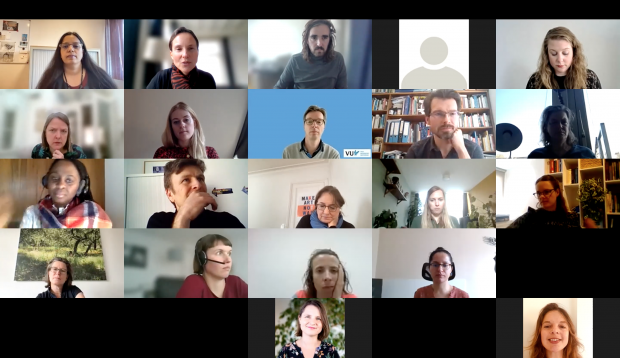
Conference Wrap-Up
To close the conference, Janet Looney, Director of the European Institute for Education and Social Policy, shared her reflections on the conference and the presentations she attended. “They reinforced for me that, at the policy level and European level […] that we’re focusing on the right things,” Looney said. She noted how she saw potential applications to policy from the conclusions drawn in presentations, and she thought it was great to see people challenging accepted beliefs within the field. The research presented throughout the conference reinforced previous findings that show how expectations placed on and support provided to students are critical, as is teacher sensitivity to student needs. This last factor again reinforces the fact that teachers have complex jobs. Looney also highlighted the lack of focus on feedback culture and the need to determine how education professionals can nurture a culture where people can confidently give and receive feedback. She emphasized the importance for students to have agency and to share their voices. Looney concluded with some reflections on the use of AI within education, saying that teachers and machines can be friends and, while AI cannot replace teachers, it can complement teachers’ work.
Katia Engelhardt, Senior Education Analyst at European Schoolnet, added her thoughts about the potential of AI and its privacy implications and asked the audience, “What kind of direction or future do we want to go to?” Engelhardt also reflected on the burgeoning Ukrainian refugee crisis and how it will test people’s trust and the trust of society at large. She noted that the impact of this crisis ultimately determines how welcoming we are and how diverse of a society we want to become. Melanie Ehren highlighted a recent experience from a call with European inspection agencies, noting that a representative from the education ministry in Ukraine asked people to support Ukrainian children in getting a robust education despite the ongoing crisis. Accommodating and supporting these refugee children will raise many issues and challenges in our education system, and everyone within the field of education must rise to the occasion to support these youth.
